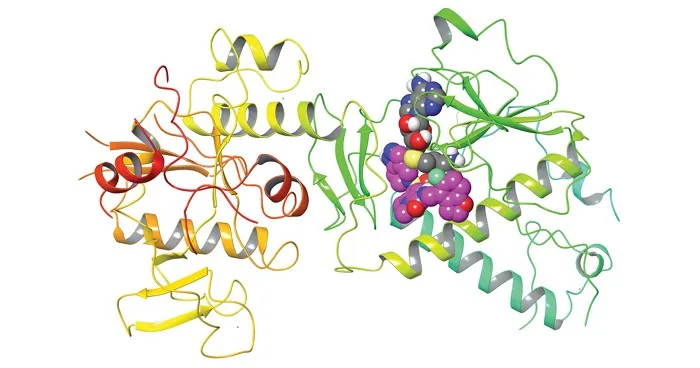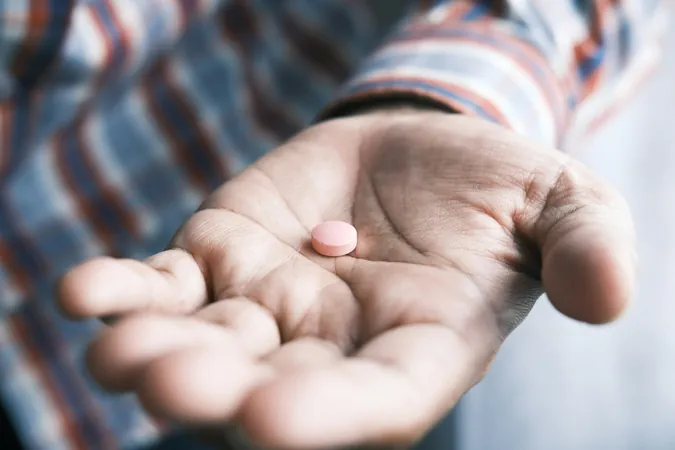
Breakthrough Discovery: New Molecule Shows Promise Against SARS-CoV-2 and Other Viruses!
2024-12-18
Author: Ming
Breakthrough Discovery: New Molecule Shows Promise Against SARS-CoV-2 and Other Viruses!
In a groundbreaking study, scientists have unveiled an innovative small molecule capable of halting the replication of SARS-CoV-2—the virus responsible for COVID-19. Remarkably, this discovery focuses on a previously underexplored enzyme, leading to potential treatments that could be effective against a range of coronaviruses and other RNA viruses, such as those causing Ebola and dengue fever.
Introducing TDI-015051
The molecule, named TDI-015051, inhibits a viral enzyme called NSP14, a methyltransferase that plays a crucial role in the life cycle of the virus. NSP14 is responsible for adding methyl caps to the virus's messenger RNA, enabling the virus to evade detection by the host's immune system. What makes this finding even more significant is that humans do not have a similar protein to NSP14, making it an ideal target for antiviral drug development.
A Unique Antiviral Approach
In contrast to existing antiviral treatments, such as Nirmatrelvir—one of the primary components of the COVID-19 medication Paxlovid—TDI-015051 targets a different viral enzyme. Researchers believe that employing a combination of antiviral strategies that target both NSP14 and other enzymes could mitigate the risk of the virus developing resistance, a common problem with antiviral therapies.
The Research Process
Thomas Tuschl, an RNA expert from Rockefeller University and the lead researcher on this project, emphasized the unique approach taken by the team. "NSP14 is essential for viral replication across many viruses but has been largely ignored in drug discovery," he stated. The complexity of creating RNA analogs might have discouraged previous attempts, but Tuschl's lab successfully screened a staggering 430,376 unique compounds to identify potential NSP14 inhibitors. After thorough testing, a team of 13 chemists dedicated an entire year to refine the molecules that ultimately led to TDI-015051.
Structural Analysis and Effectiveness
The structural analysis of TDI-015051 revealed that it binds effectively to the NSP14 enzyme's guanine cap-binding pocket, disrupting the essential process of methyl transfer. Lab tests demonstrated that TDI-015051 not only inhibited the replication of SARS-CoV-2 in infected cells but also proved effective against SARS-CoV-1—cautioning that this molecule could serve as a broad-spectrum antiviral treatment.
Expert Opinions
Experts are weighing in on this exciting development. Jia Zhou, a drug discovery researcher at the University of Texas Medical Branch who was not part of the research team, found this discovery particularly exciting. He commented, "The remarkable in vitro and in vivo findings provide proof-of-concept supporting a novel antiviral strategy that targets viral cap methylation."
Challenges Ahead
However, not all feedback is unequivocally optimistic. While TDI-015051 shows great potential, Zhou noted that its pharmacological characteristics, including a short half-life and rapid clearance from the body, limit its immediate viability as a drug candidate. Nevertheless, this molecule stands as a promising foundation for further drug development efforts aimed at combating SARS-CoV-2 and potentially other viral threats.
Conclusion
Stay tuned for further updates on this exciting research that could change the landscape of antiviral treatments as we know them!


 Brasil (PT)
Brasil (PT)
 Canada (EN)
Canada (EN)
 Chile (ES)
Chile (ES)
 España (ES)
España (ES)
 France (FR)
France (FR)
 Hong Kong (EN)
Hong Kong (EN)
 Italia (IT)
Italia (IT)
 日本 (JA)
日本 (JA)
 Magyarország (HU)
Magyarország (HU)
 Norge (NO)
Norge (NO)
 Polska (PL)
Polska (PL)
 Schweiz (DE)
Schweiz (DE)
 Singapore (EN)
Singapore (EN)
 Sverige (SV)
Sverige (SV)
 Suomi (FI)
Suomi (FI)
 Türkiye (TR)
Türkiye (TR)